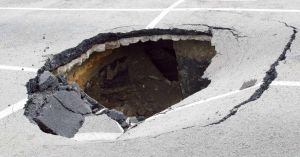Elon Musk and Donald Trump have launched a concerted campaign against the U.S. Agency for International Development (USAID), threatening the future of U.S. humanitarian aid efforts across the globe. Musk, who has become one of Trump's closest advisors, has dubbed USAID a "criminal organization," accusing it of misusing taxpayer funds and harmful dealings, including baseless claims about involvement with the COVID-19 outbreak.
The controversy began to unfurl as Musk, now informally dubbed the shadow vice president of the United States, propelled allegations without evidence, asserting on his social media platform, X, "USAID is responsible for the coronavirus and must die." Such incendiary remarks have stirred concerns among Democrats and global humanitarian advocates.
According to Trump, the agency is presently governed by "a bunch of radical lunatics" and has pledged to remove them from their posts. The president, who has asked Musk to streamline governmental expenditures, appears to be joining Musk's dubious campaign against one of America’s key tools for foreign aid and development.
The impassioned rhetoric from Musk and Trump highlights what has traditionally been seen as the United States’ commitment to helping the world's most vulnerable populations. With over $40 billion allocated annually for international humanitarian assistance, USAID serves as the largest donor globally for fighting hunger, disease, and natural disasters. Yet, Trump has framed this aid as excessive, arguing it detracts from funding needed for U.S. citizens.
Recent reports indicate escalated actions from Musk’s team, identified as the Department of Government Efficiency (Doge), aimed at undermining the agency. Sources allege this team attempted to breach USAID facilities to gather sensitive information, resulting in two senior security personnel being terminated after they blocked access.
Democratic Congress members, frustrated by the administration's growing disinformation campaign, faced access denial to the USAID building when seeking clarity on the agency's operations. Senator Chris Van Hollen reported, "We wanted to find out firsthand what was happening, but access was denied due to mandates from Musk’s committee. We were directed to the State Department, hinting at USAID’s absorption by it. This is indicative of the troubling changes happening behind the scenes."
Meanwhile, Marco Rubio, U.S. Secretary of State, claims to be running the agency after naming another to oversee its management, hinting at potential restructuring or even disbanding. The sudden removal of USAID from the public eye—its website and social media accounts have been temporarily taken down—coupled with employees being instructed to work from home without clear communication raises alarms about transparency.
This controversy over USAID aligns neatly with Trump's broader agenda of shifting government spending priorities. He asserts, "Only 10 to 30 percent of foreign aid reaches those actually needing help, with the rest lost to waste and corruption." The president’s quest to slash foreign assistance aligns with his America-first doctrine, which often portrays humanitarian aid as harmful to domestic interests.
Democratic lawmakers have signaled their urgent concerns over the dismantling of USAID, identifying it as not just illegal but as damage to America's standing as the foremost global humanitarian leader. They warn this degradation could jeopardize international relations and open doors for rivals, like China, to gain influence.
Chuck Schumer, the Democratic minority leader, articulated these fears, stating, "Trump's actions are indicative of undermining our country’s humanitarian brand. We have witnessed firings and intimidation tactics targeting USAID staff, and the rumor of USAID's dissolution is alarming." Similarly, Senator Chris Murphy remarked on X, "I have heard Trump will exacerbate the constitutional crisis. Such actions are only comical for would-be despots who wish to plunder taxpayer resources to enrich their billionaire allies."
The repercussions of Musk and Trump’s coalition against USAID resonate far beyond the confines of Washington D.C. The agency has traditionally represented the U.S.'s commitment to global leadership through humanitarian support, and with its potential downfall, critics warn we face a significant moral and ethical crossroads. U.S. humanitarian aid not only reflects American values but also serves as strategic diplomacy, instilling goodwill internationally. A potential dismantling could erode decades of credibility, leaving vulnerable populations around the globe to fend for themselves.
While the administration pushes forward with its controversial plans, bipartisan rhetoric emphasizing the importance of maintaining support for international development grows. Democrats appeal for collaborative efforts to preserve USAID's autonomy, reminding the public of the agency's foundational role since its inception under President John F. Kennedy—a mechanism meant to coordinate and bolster foreign assistance to those struggling across continents. The stark reality remains: without USAID, the most vulnerable could be left unassisted, leading to dire consequences on the global stage.



